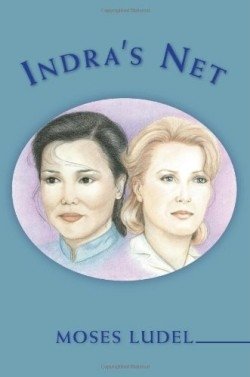Indra's Net
Beginning with the death of an old cowhand in the Sierra Nevadas and quickly progressing to the jungle battlefields of WWII “Indochina” (Vietnam) this ambitious novel spreads its net across the marches of history reeling in gold nuggets of intriguing fictional action.
The premature death of Vietnam veteran and double amputee Mike Sterns stirs a host of memories for his family in particular his father a World War II vet. Soon readers are drawn into the memory of Captain Pete Sterns as an honorable character serving with the 5307th in Burma while his girl Sarah (Mike’s mother) waits anxiously back home in Nevada. A daring member of the legendary Merrill’s Marauders Sterns survives plenty of dangerous encounters with Tanaka’s 18th Division. But his most perilous encounter of all may be with the attractive Vietnamese Doctor Dinh.
One of the best things about this novel is the author’s firm grasp of history; especially as experienced from the viewpoint character of Dinh. To her Communism is no “evil empire—after nearly a century of racist subjugation by first the French and later the Japanese Dinh sees the revolution as a chance for women to hold important leadership positions for modern medicine to assist rural and poor urban citizens and for the sharing of food clean drinking water and medical supplies. This idea coupled with the U.S. Government’s initial support of the Viet Minh will come as new information to many readers who certainly didn’t learn this in high school or even college history.
Pete had no sympathy for the French in Asia. They [had] capitulated to the Japanese in Indochina without the least resistance which President Roosevelt and most Americans regarded as opportunistic even cowardly. In Burma Pete heard Gurkhas and Kachins speak even more critically of French colonials than of the British… As the Americans discovered the horrific impact of the recent Tonkin famine they realized the depths of French and Japanese exploitation… For eighty years the abundant resources of Indochina [had] fed mother France and more recently Imperial Japan. Pete fell asleep to the image of a frail Ho Chi Minh filled with resolve reading the Viet Minh’s Ten-Point Program for the liberation of his country.
Author Ludel is one of the few modern authors to truly understand the vicious contempt in which the Imperial Japanese held enemy soldiers who surrendered in particular and non-Japanese races in general. The descriptions of battlefield conduct are chilling. However the anguish of Japanese-Americans interned in camps in the United States is just as convincingly written. The omniscient narrator of Indra’s Net is not only all-seeing but all-compassionate but without falling into sentimentality.
Although the forward motion of the plot sometimes suffers from an excess of historical information this comprehensive novel reads like a history book without the boring bits covering much of the ground of the world’s past—some of it scarcely disturbed by American boots. Teachers and librarians should find it of particular interest. An engaging satisfying and richly lengthy read.
Reviewed by
Holly Chase Williams
Disclosure: This article is not an endorsement, but a review. The publisher of this book provided free copies of the book and paid a small fee to have their book reviewed by a professional reviewer. Foreword Reviews and Clarion Reviews make no guarantee that the publisher will receive a positive review. Foreword Magazine, Inc. is disclosing this in accordance with the Federal Trade Commission’s 16 CFR, Part 255.

